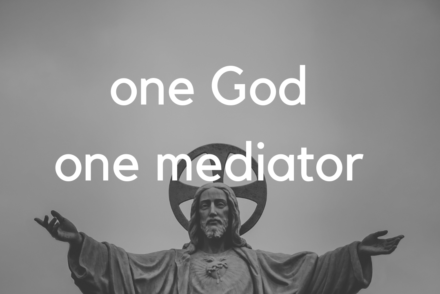Churches in America have had their normal modes and methods more disrupted in the last three years than they have in perhaps the last hundred thanks to the upheaval caused by COVID, political shifts, and cultural changes.
Over the last year or so I’ve seen and heard numerous people – from casual church attendees to pastors with decades of experience – asking significant questions about what church might look like beyond a Sunday-morning centric model.
Those questions excite me. I’ve spent the last 15 years learning, dreaming about, and working towards models of ministry and church that – I believe – more accurately reflect Jesus’ intention for his Body. Models that are grounded in the communal reality of a trinitarian God who sent Jesus “on mission” and started a church that looked more like an underground movement than a monolithic institution.
The 16 books below have been an integral part of that process and will, I am confident, be a massive encouragement, challenge, and inspiration to you. Whether you’re a pastor thinking about how to guide your church into the future, a young adult who’s dissatisfied with things as they are, or a long-time church attender who’s frustrated by the disruption of the last 36 months, you’ll find hope and help for the body of Christ in the pages pointed to below.
Why a list of books?
One of the biggest hurdles to reshaping the church is the paradigm-lock that much of western Christianity has had for (approximately) the last two hundred years. America’s centuries of cultural christianity have locked in many assumptions about what church is and isn’t. Those assumptions are increasingly being confronted by a changing reality.
Reading books that provide significantly different perspectives is a key step towards developing a new paradigm. In the books listed below you’ll hear from thinkers and practitioners with a wide array of contexts and backgrounds and be forced to think in new ways as a result.
That said, books aren’t enough. Experience is essential. Micro or missional church models aren’t something you’re going to master by reading. You need to practice and do, or better yet apprentice under someone who’s already practiced.
But reading a book is a good starting place.
The logic of this list
For the sake of organization this list is broken up into 3 categories based on the primary emphasis of the books in that section;
- Theology
- Theory
- Practice
A quick note about micro-church
Micro church, missional church, organic church, and others are all labels that are more about a theology, philosophy, and ecclesiology than about a specific set of activities or practices. One micro-church will look – and should look – significantly different than another. That variagation is intentional.
In the books below you’ll find a variety of forms and formats for missional church, but thhere are common denominators. These include being:
- Intentionally small
- Foundationally relational
- Focused on going to the lost rather than getting them to come to the church
- Generally less hierarchical leadership structure
- Obsessed with disciple-making and multiplication
The list
Theology
- The church and it’s vocation – Michael W. Goheen
Goheen’s book is a thorough analysis of Leslie Newbigin’s work on the church and its purpose. He does an excellent job survey, categorizing, and articulating Newbigin’s writing and teaching on what church is/ought to be. Despite being somewhat academic it’s an easy read and is packed with thoroughly quotable quotes.
- The Mission of God – Chris Wright
This is probably the “heaviest” theological read in the list. In this massive tome Wright provides an exhaustive survey of the concept of the mission of God in scripture. He traces key themes from Genesis 1 to Revelation 21. Definitely not for everyone, but if you want some biblical foundation for the concept of God being on mission (and therefore his people being called to be on mission as well), this is the place to look. I don’t think I’ll re-read it from cover to cover, but it will definitely be a go-to reference book.
- Delighting in the Trinity – Michael Reeves
Unlike the previous two volumes, Delighting in the Trinity isn’t directly about the form or function of the church. It’s about who God is. Reeve’s provides a refreshing re-orientation to the biblical, trinitarian God that is sure to set your heart afire again for making the Gospel known. Why include it in a list of missional must reads? Because our view of God shapes what we believe the church should look like, and Reeves’ call to acknowledge the relationality of the trinity is a theological foundation that – at least for me – has been a key driver of working to create a more relational, communal form of church.
- The Shaping of Things to Come – Alan Hirsch and Michael Frost
I debated whether to put this book in the “theory” category or here in theology and opted for theology, since Hirsch and Frost’s case for a more missional mode of church is primarily a theological one. They make a case for three essentials if the church wants to reach an increasingly post-Christian culture: incarnational ecclesiology, messianic spirituality, and apostolic leadership.
Saturate – Jeff Vanderstelt
While not “heavy” theology like most of the other books in this section, Vanderstelt’s exposition on some of the foundational theology and principles of Soma – the missional-community model church he founded on the Northwest – provides some helpful theological foundations for missional living and the micro-church model.
Theory
- Letters to the Church – Francis Chan
Chan’s series of “letters” are a convicting and inspiring set of reflections on the biblical call of the church. With his typical simple, winsome directness, Chan’s letters will push you to re-evaluate your conception of church and your own love for Jesus. This would be a great book to read and discuss with several others.
- Organic Church – Neil Cole
Part story of Cole’s adventures in planting churches among urban post-modern contexts in America, part apologetic for a missional mode of church that goes to the lost rather than expecting the lost to come to church, Organic Church is an easy read that will also deeply challenge your conception of what’s possible. The “simple church” (generally home-based) model that they stumbled into thrived, and when he wrote the book in 2005 their network, Church Multiplication Associates, had launched nearly 800 churches in the span of six years.
- Pioneering Movements – Steve Addison
Steven Addison has written a number of books about Gospel movements. This book, his third, is specifically about the necessary ingredients for those who have a desire to lead disciple-making movements. While nothing that Addison says here is new, he does an excellent job of providing concise frameworks and tools that are grounded both in Scripture and in the study of numerous historical and present Gospel movements.
- The Forgotten Ways – Alan Hirsch
Hirsch’s thinking has been influential enough that he gets two books on this list. One speaker at the Austin Stone’s Verge conference (a key missional church conference from the early 2010s) described Hirsch as “the Yoda of missional Christianity.” I think that’s a fair moniker, and this book is – by my estimation – the central text of his life’s work. In it he analyzes disciple-making movements throughout history and distills 6 pieces of “DNA” that show up in all of them. This isn’t an easy read, but it’s one that I’ve found helpful enough that I re-read it about once a year.
- Miraculous Movements – Jerry Trousdale
This book is a moving and inspiring account of disciple-making movements taking place primarily among Muslim people groups in Africa. While ministry in the western world is significantly different, the stories from this book as well as some of the practical tools like Discovery Bible Study and the concept of immediately releasing new converts into their relational networks with the Gospel are powerful regardless of context.
- The Spontaneous Expansion of the Church – Roland Allen
Based on the number of other books on this list that reference this small book by a 19th-century Anglican missionary to China, Allen should probably be considered one of the “OG” missional thinkers. His reflections on the challenges of missionary living in a pre-Christian society and argument that local/native leaders should be raised up to lead the church rather than having western missionaries stay in control pre-figures much of later missional thinking.
Practice
- Discipleship that fits – Bobby Harrington and Alex Absalom
This short book connects sociological principles with Jesus’ methods of ministry to the crowds, the 72, the 12, and the three to provide an immensely useful framework for thinking about how to use different group sizes most effectively. Harrington and Absalom’s proposal is that we need to think about creating “discipleship that fits” by leveraging the natural strengths of each social space. Seriously, I can’t recommend reading this book highly enough.
- Church 3.0 – Neil Cole
To steal a quote from the earlier Neil Cole book mentioned, “We want to lower the bar of how church is done and raise the bar of what it means to be a disciple.” In Church 3.0 Cole delves into some of the theology behind missional church, provides practical guidance for leading a missional community, and answers numerous objections and questions to missional models of church. Of all the books on this list, this is probably the most “comprehensive” in scope in regards to missional Christianity.
- Building a Discipling Culture – Mike Breen
Out of all the books on this list, Breen’s Building a Discipling Culture is probably the one I reference most in my day-to-day leadership and disciple-making. The “LifeShapes” that Breen and the others who were a part of 3DM developed are so massively useful for communicating fundamental biblical principles that I think I can honestly say that I’ve used them multiple times a week every week since I originally read this book back in 2013.
- The Tangible Kingdom – Matt Smay and Hugh Halter
Halter and Smay provide a refreshingly direct (if at times acerbic) critique of traditional models of church, share some of their own stories, and provide a pathway forward towards a mode of church that balances the three strands of communion, mission, and community.
- Everyday Church – Tim Chester and Steve Timmis
This simple, direct book by two missional church practitioners based in the UK was the first book I encountered that put words to the tensions I was feeling as I helped start a young adult ministry that went beyond the walls of a typical mid-week service model 13 years ago. Their two-fold argument that the church is a combination of Gospel and Community is effective, and though I don’t totally agree with all of their theology the book is still an excellent one.



No Comments